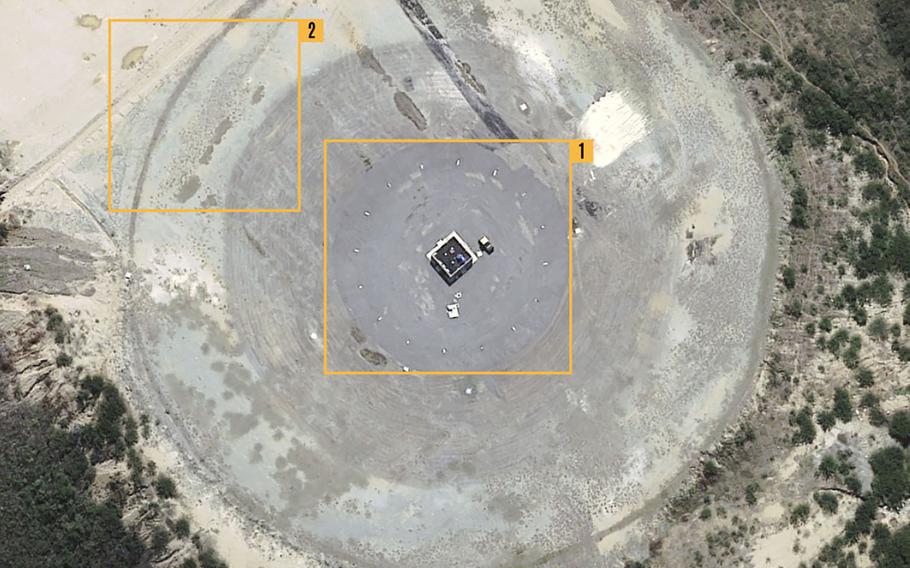
The Center for Strategic and International Studies detected the construction of the new facility intended to collect signals intelligence near a neighborhood called El Salao, east of Santiago de Cuba. (The Center for Strategic and International Studies/screenshot via TNS)
(Tribune News Service) — Cuba is building a new spy base near the city of Santiago de Cuba that will be capable of tracking U.S. air and maritime military movements thousands of miles away, according to a new report from a Washington research organization.
In an analysis of satellite images, The Center for Strategic and International Studies in Washington said it had detected the construction of the new facility intended to collect signals intelligence near a neighborhood called El Salao, east of Santiago de Cuba, the island’s second-largest city.
The United States operates a base in Guantanamo Bay, about 50 miles east of the city.
In a report released Tuesday, the Center said it analyzed satellite data and concluded the site has been under construction since 2021. The site is one of four signal intelligence facilities in Cuba that the report says might be “the most likely locations supporting China’s efforts to spy on the United States.”
The structure appears to be a large group of antennas, called a circularly disposed antenna array or CDAA, that allows analysts to determine the origin and direction of incoming high-frequency signals. They were commonly used to spy during the Cold War. “Once operational, this CDAA will serve as a powerful tool for enhancing air and maritime domain awareness in the region, where the U.S. military and its international partners operate regularly,” the report said.
Given Cuba’s proximity to the United States, China’s intelligence collection in Cuba “ would open a significant intelligence window inaccessible from within Chinese territory.”
The Center, a bipartisan think tank affiliated with Georgetown University, also studied satellite imagery of other previously known or suspected Cuban intelligence gathering facilities in Bejucal, Watao and Calabazar, all near the capital. It noted the expansion of space-monitoring equipment at Bejucal and Calabazar even if Cuba lacks its own satellites or space program, suggesting these bases are likely monitoring U.S. satellites.
The new report does not provide conclusive evidence, likely classified, connecting the spy facilities to Chinese espionage but it follows news reported by the Wall Street Journal that Cuban and Chinese officials were discussing building a spy base and a military training facility on the island and paying billions of dollars to Cuba in exchange.
The Office of the Director of National Intelligence did not immediately reply to a request for comment on the new site under construction and its potential links to China’s espionage activities in the region.
China has increased its presence in the Western Hemisphere in recent years, and has been involved in the construction of several infrastructure projects, including ports and airports in Caribbean countries that experts fears will be exploited for military and intelligence purposes.
Cuba has denied that China has its own base on the island. But Chinese spy agencies have had a presence in Cuba for several decades, at least in one of the facilities described in the report, the base in the town of Bejucal, a 45-minute drive from Havana.
Chris Simmons, a former chief of a counterintelligence research branch on the Western Hemisphere in the U.S. Defense Intelligence Agency, told the Herald that China has been jointly operating the base with Cuban spy agencies since 1992. It took U.S. spy agencies nine years, until 2001, to learn of the arrangement, he said.
Miami Republican representative Carlos Gimenez, who serves on the select committee on China, Armed Services and Homeland Security immediately reacted to the new report, saying he expected more Chinese and Russian presence in Cuba due to president Joe Biden’s “lack of leadership in the Western Hemisphere.”
Last month, a Russian flotilla including a nuclear-powered submarine arrived in Havana closely tracked by U.S. warships.
©2024 Miami Herald.
Visit at miamiherald.com.
Distributed by Tribune Content Agency, LLC.